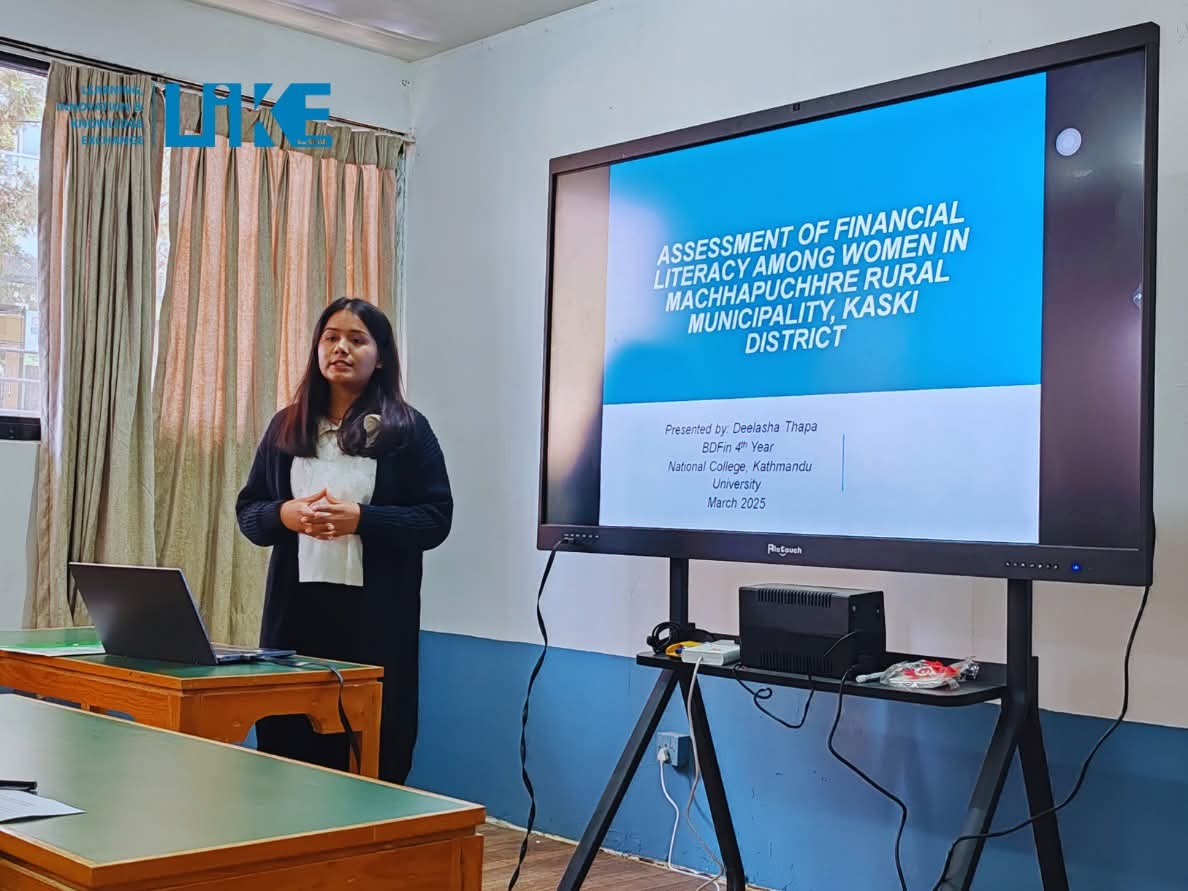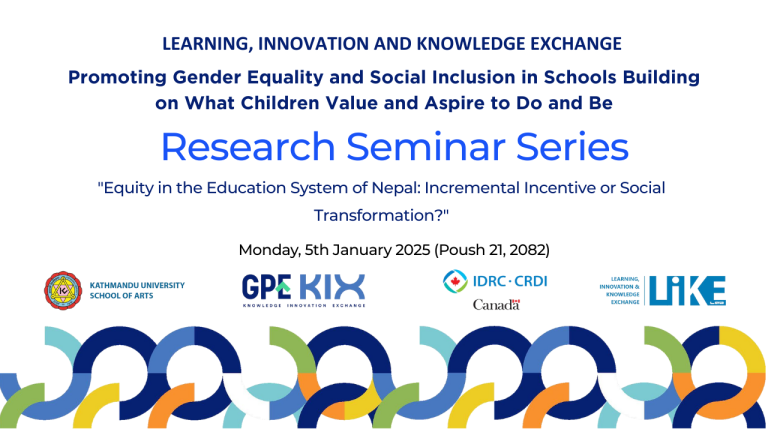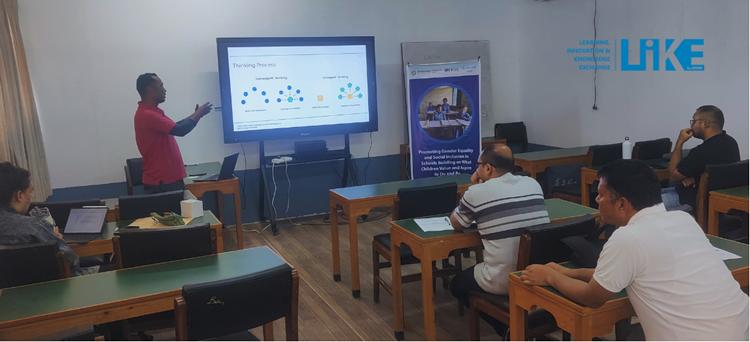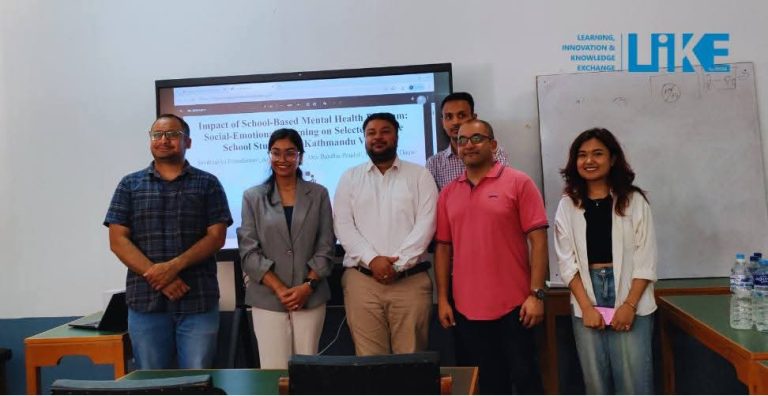
KATHMANDU, NEPAL, MARCH 3rd, 2025 – The Learning, Innovation and Knowledge Exchange (LIKE) Lab at Kathmandu University School of Arts organized a research seminar on “Assessment of Financial Literacy Among Women in Machhapuchhre Rural Municipality, Kaski District.” The session brought together participants to discuss the gender gap in financial literacy and its implications for women’s empowerment in Nepal.
Moderated by Ms. Barsha Manandhar, the session featured a presentation by Ms. Deelasha Thapa, who shared findings from her study exploring financial knowledge, attitudes, and behaviors among rural women in Machhapuchhre Municipality.
Key Highlights of the Presentation
- Women in Nepal have a financial literacy rate 7.5% lower than men, reflecting broader structural and social challenges. This highlights the gender gap in financial literacy in Nepal
- The sample of the study was 236 women aged 16–60 from all 9 wards of Machhapuchhre Rural Municipality. The study was descriptive and explanatory, using non-random sampling and structured questionnaires.
- The theoretical frameworks of the study were Theory of Planned Behavior (Ajzen, 1991), Social Learning Theory (Bandura, 1977), and Life Cycle Hypothesis (Modigliani & Brumberg).
- The study found that women primarily used banks, followed by cooperatives and microfinance institutions.
- The women had limited trust in financial institutions because of the ongoing cooperative scams.
- One of the crucial findings of the study was that higher education improved financial knowledge but did not necessarily lead to better financial behavior.
- Similarly, older women exhibited lower financial confidence.
- Positive correlations were found between financial attitude, intention, and behavior.
Discussion and Reflections
In the open discussion, participants raised key issues and insights:
- Many women lacked a structured savings culture and comprehensive financial management practices.
- The municipality’s high female population, partly due to foreign employment trends, highlights the need for targeted interventions.
- Digital banking knowledge was basic, with women aware of remittance transfers but not of financial apps or their functionalities.



